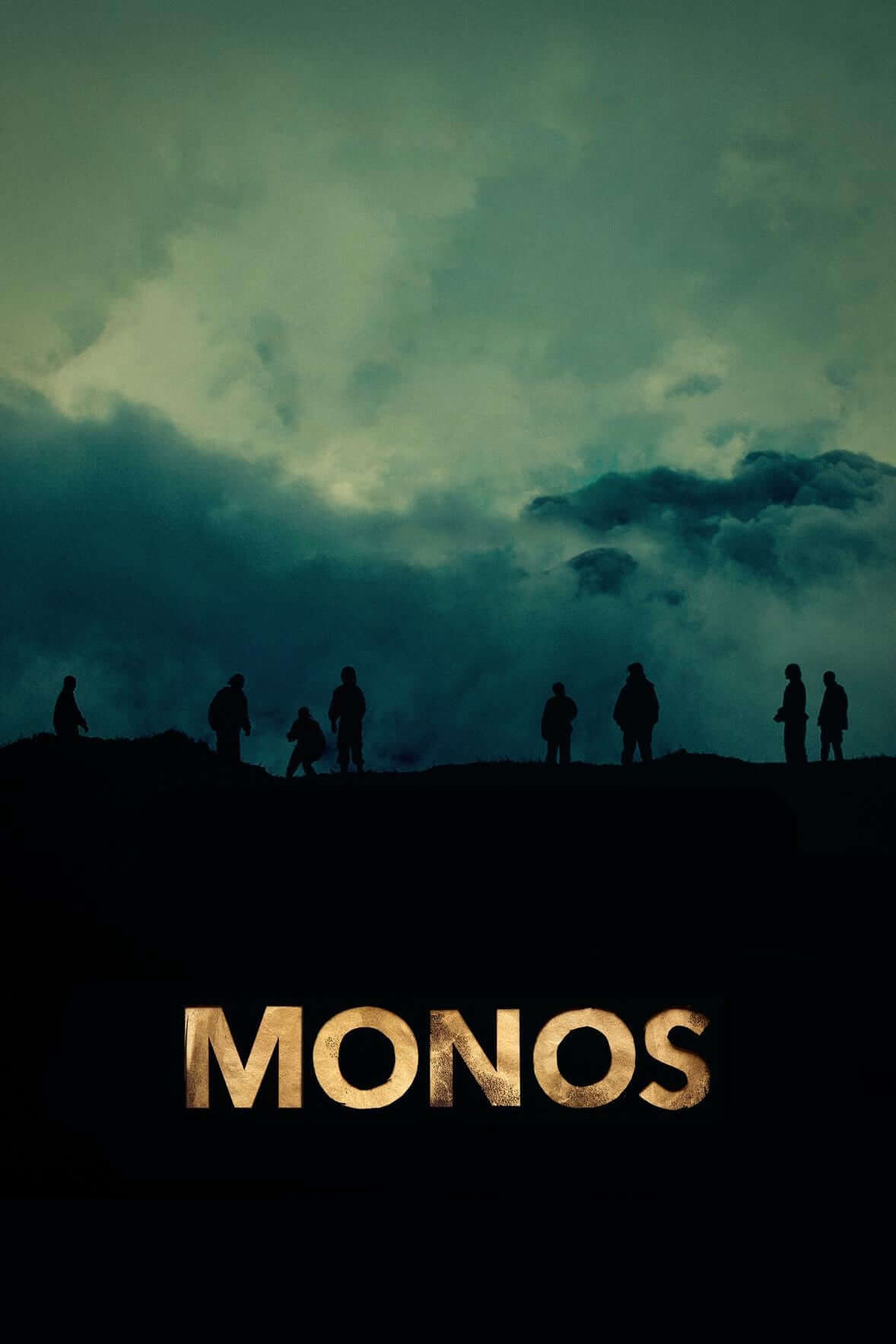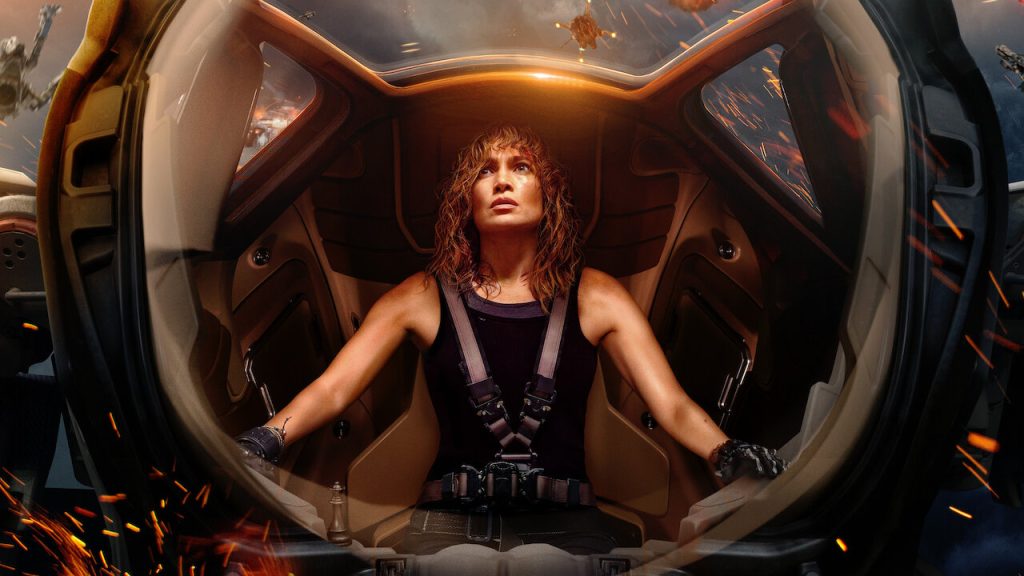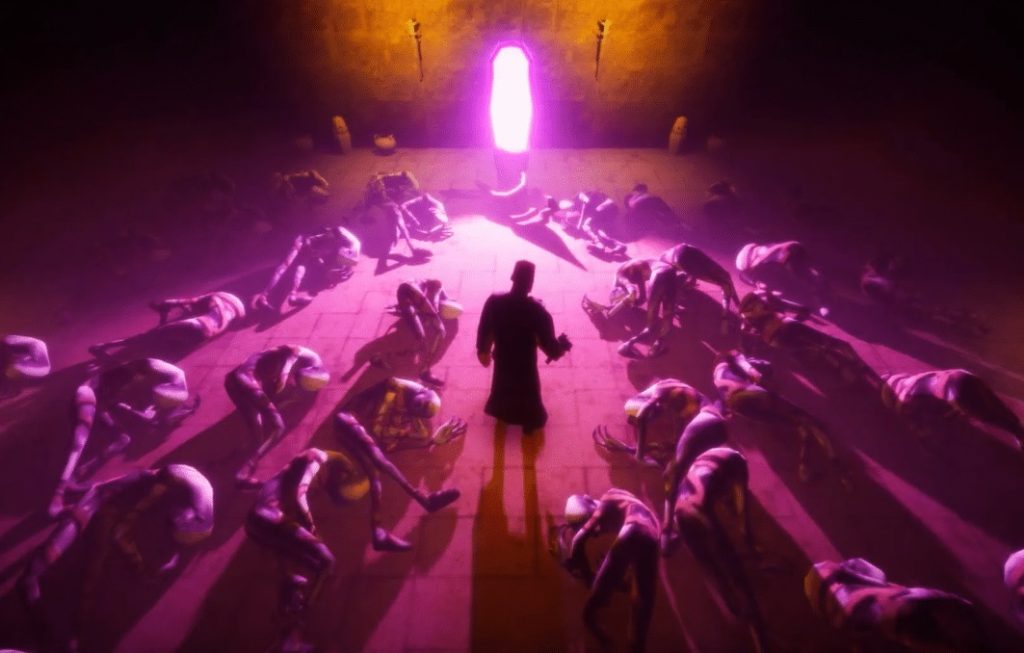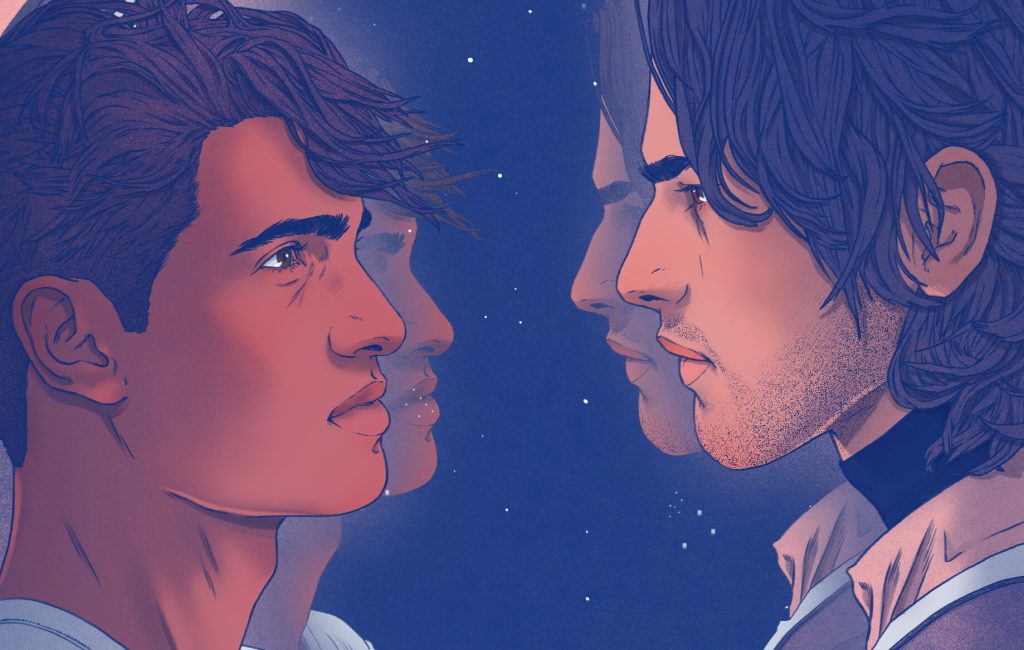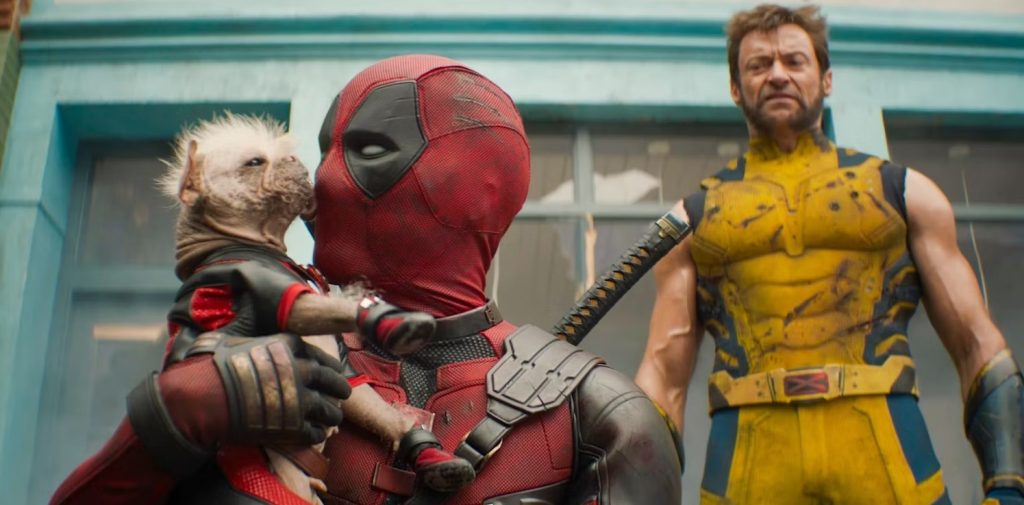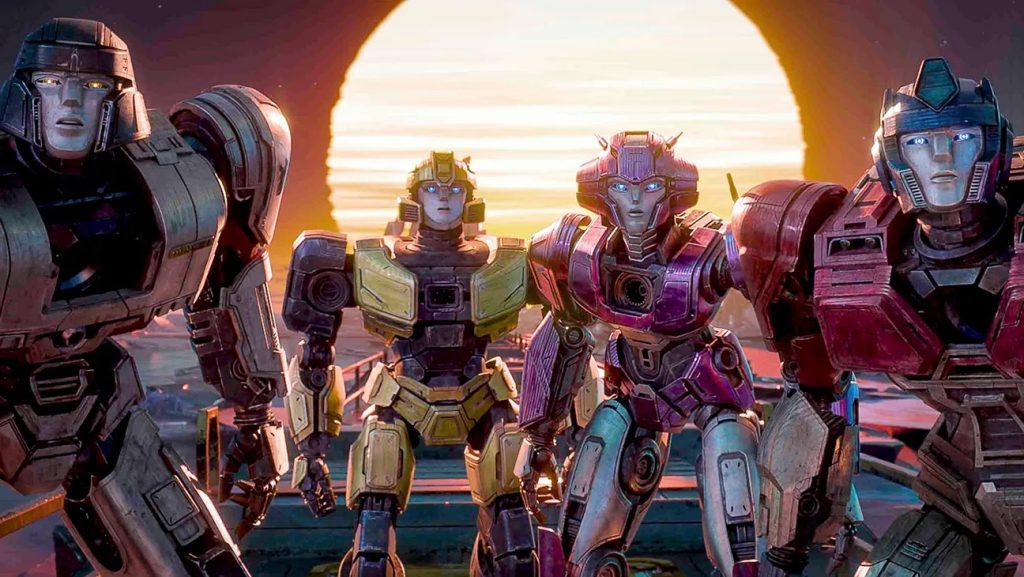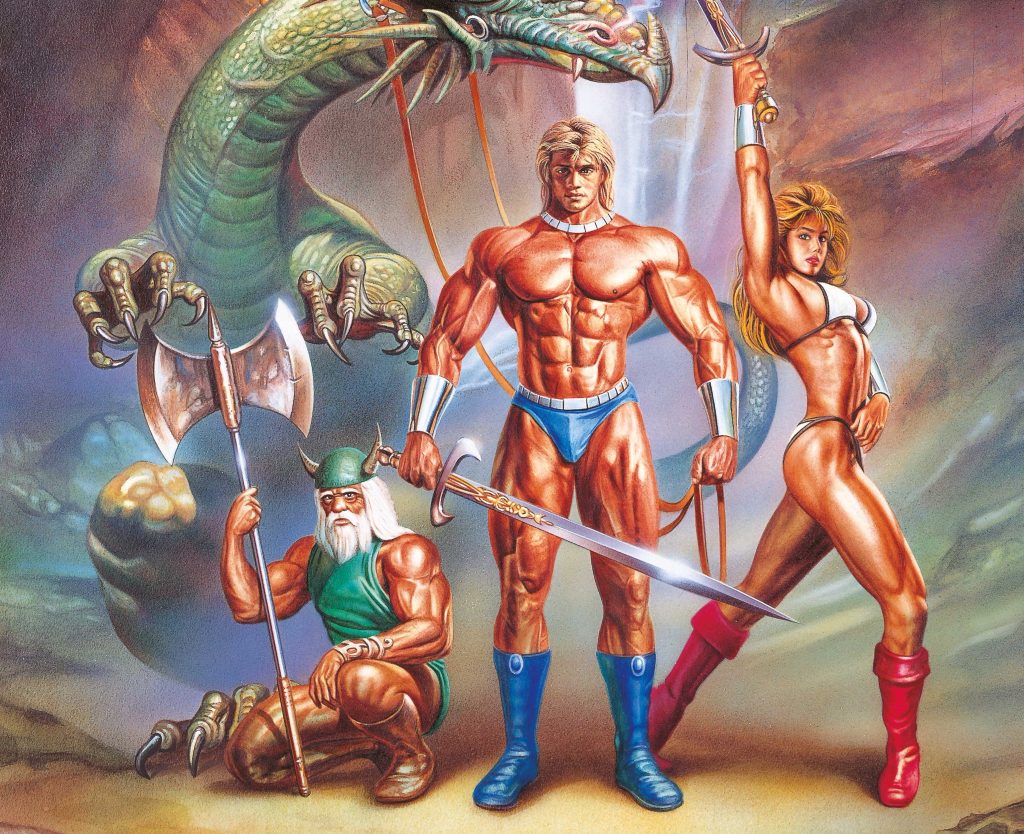STARBURST sat down with Colombian-Ecuadorian director ALEJANDRO LANDES at this year’s LFF to speak about his latest feature, MONOS, which has been selected as the Colombian entry for the Best International Feature Film for the upcoming Academy Awards. Difficult to define and even harder to classify, the film begins on a mountaintop somewhere in Latin America, where a group of children with guns watch over an American hostage and a conscripted milk cow…
STARBURST: How hard was it to pitch a movie that’s so difficult to pigeonhole?
Alejandro Landes: Hard. We went in with just over half the budget, because people didn’t feel entirely comfortable investing until they could see a part of it. It took a while and took a lot of convincing; there’s money from nine different countries because we had to pass the hat around. It was an uphill battle, but it was definitely something that we had to make as we went because no one really knew what it was. And the truth is, not even I did! I wanted to make sure that I didn’t end up in the exact same place we began. Ideally, I will discover things in the process, otherwise it’s not alive.
So what was the idea you started with?
Well, I was very much inspired by the idea of creating a political allegory not from an ideological perspective, but from a human one. So the idea of creating this huge ideological vacuum, where you don’t know whether they’re fighting for the left or the right, was very much part of the beginning. And then the idea to create this kind of hall of mirrors where it looks like Paradise but it’s also Hell; they’re neither child nor adult; it’s a kidnapping film told from the point of view of the kidnappers, who in a way are kidnapped themselves. You see all these tropes you’ve seen before, like kidnappings or child soldiers but told in a way that is fiercely present. You don’t have all that exposition about where they come from or where they’re going, you just have to latch onto the humanity of that moment. There’s also the unconventional point of view – generally you’d choose a hero and navigate the world through that person. Here, it’s this kind of pinball machine that goes from one point of view to the other. I wanted the film to feel like a river, not like you were watching a river from the bank but like you were actually in it, that it sweeps you along.
You said you’re not making an ideological point about child soldiers, so what went behind the decision to cast children, or teenagers, in the role of the victimisers?
Two things. One is that I think they are us, in the way that you can see both the tenderness and the cruelty in them, but with greater intensity. It’s a time in life when you live everything with such intensity, so I thought that youth creates a dramatic window into human nature, in the same way that war is a dramatic window into human nature. And two is that young people allow you to talk about the future and where we’re going, and ask that question at the very end: What do we do now? What do we do with that beast within?
In terms of casting, you brought together two very different groups. On one hand you had first-time actors who only spoke Spanish, and on the other you had an established American actress [Julianne Nicholson]. How did you use that to the film’s advantage?
I didn’t give the screenplay to the kids at any point. I had them living all together, all the time. They shared a tent, they shared a schedule, they shared meals, everything. And with Julianne, I always put her away. I tried to create a situation where, when we were in the mountain she stayed far away, when we were in the jungle she had her own tent. I wanted to keep her a little isolated. And it helped that they didn’t speak each other’s language – other than Moisés Arias, but I asked him to speak to her as little as possible.
Very method.
Yeah, and I wanted to make sure that Julianne didn’t just come and shoot the scenes she was in, then go back to L.A. She was cool with that. And all those drawings you see in her cell, for example, I just had her sit in the room and draw them herself. She wasn’t bathing, she was in a cold place, there was no personal grooming, no vanity. That just helped to generate a context where even for her, for a beautiful former model and actress, to look at herself and have her armpit full of hair and you can see she hasn’t used shampoo in a long time, it helped create a mood.
The conflict onscreen is kept devoid of context, but would you say that your experience of conflict in Colombia influenced the story?
Yes, without a doubt. I’ll tell you two things. One is that my mother’s side of the family is Colombian, from Medellin, and they experienced all sorts of conflict and violence like so many others, including kidnappings. And that’s a war that’s happened for so many years over so many fronts – and I know the most famous one is the main guerrilla group, FARC – but there are several other guerrilla groups, and there’s several right-wing groups, and then there’s the Narcos, and then there’s the state, and then there’s foreign actors. It’s a war with many different fronts. And I think when you look today at conflict, it’s not like conflict that you used to see more romantically on screen, of the time of WW1 or WW2.
…Where there’s a clearer good guy and bad guy.
Yeah, and you’ve got the front lines, the different uniforms, you’ve got the flags. It’s more like a boxing match, with two different-coloured trunks and you know who you’re rooting for. Then you look at Syria, Afghanistan, Iraq… I mean, I don’t even understand it. I think that that’s what’s modern about the film, it creates that feeling where even for the boots on the ground, they don’t know what’s happening. I took that approach because the Colombian type of irregular warfare speaks to the type of warfare we see today. There’s a big fog of war. For an 18-year-old dropped in Afghanistan from the United States, you don’t know anything. What’s the end in sight? What does victory mean? When is the end? Where’s the battle line? It’s war fought from the back line, it’s in the shadows. And I think that those wars are so muddled that people want to look the other way. That’s why I think Monos speaks to that – these child soldiers in a third world country, they are us.
And it speaks of violence at large…
It tells you about the perpetual nature of violence, because you see Bigfoot create his own Organisation after separating from the main group, then at the end you see a potential for a future generation to also evolve into that violence. And that’s how these groups are. Remember how the war in the Middle East starting to go after like, Al Qaeda, then ISIS, then ISIL, you’re just chasing a new acronym. I guess what I’m trying to say and the film does as well, is that since the fighting is concentrated not on ideology but between people, and that many times we think we’re fighting for historical or structural reasons, sometimes we’re fighting for personal reasons. I think that’s sometimes overlooked, as simple as that may seem.
And it serves your point well that neither the setting nor the clothes allow the audience to pinpoint the story to any specific time or place.
Often in storytelling we use positive space, but negative space is just as important – what you don’t tell, what you hold back. Like if you’ve been to the 9/11 memorial in New York, you have that huge empty footprint. So let’s say 200 years from now, someone goes there and looks into that great empty hole, and you don’t know anything else. That still creates a pit in your stomach even though you might not have the political information. There’s an emptiness there that hits you.
That’s Monos.
Alejandro Landes’ MONOS opens in selected UK cinemas on October 25th. Read our review HERE. For more information visit www.monos.film | Facebook: @MONOSFILMUK | Twitter: #MONOSFILM

